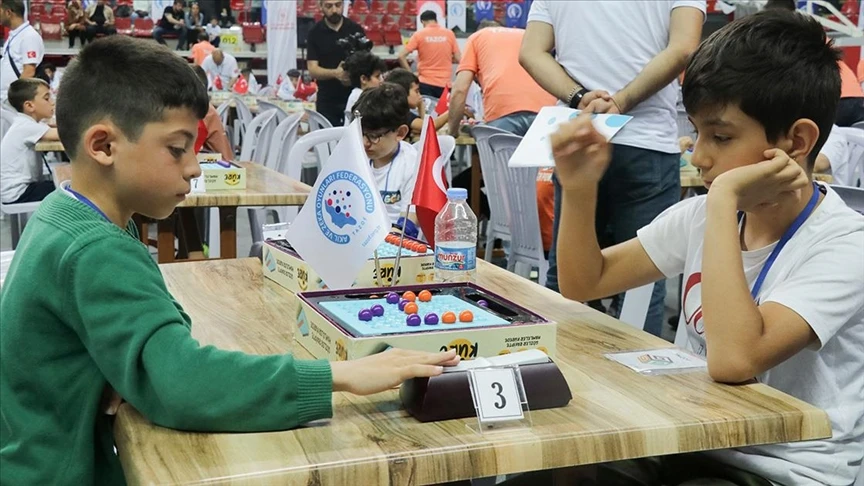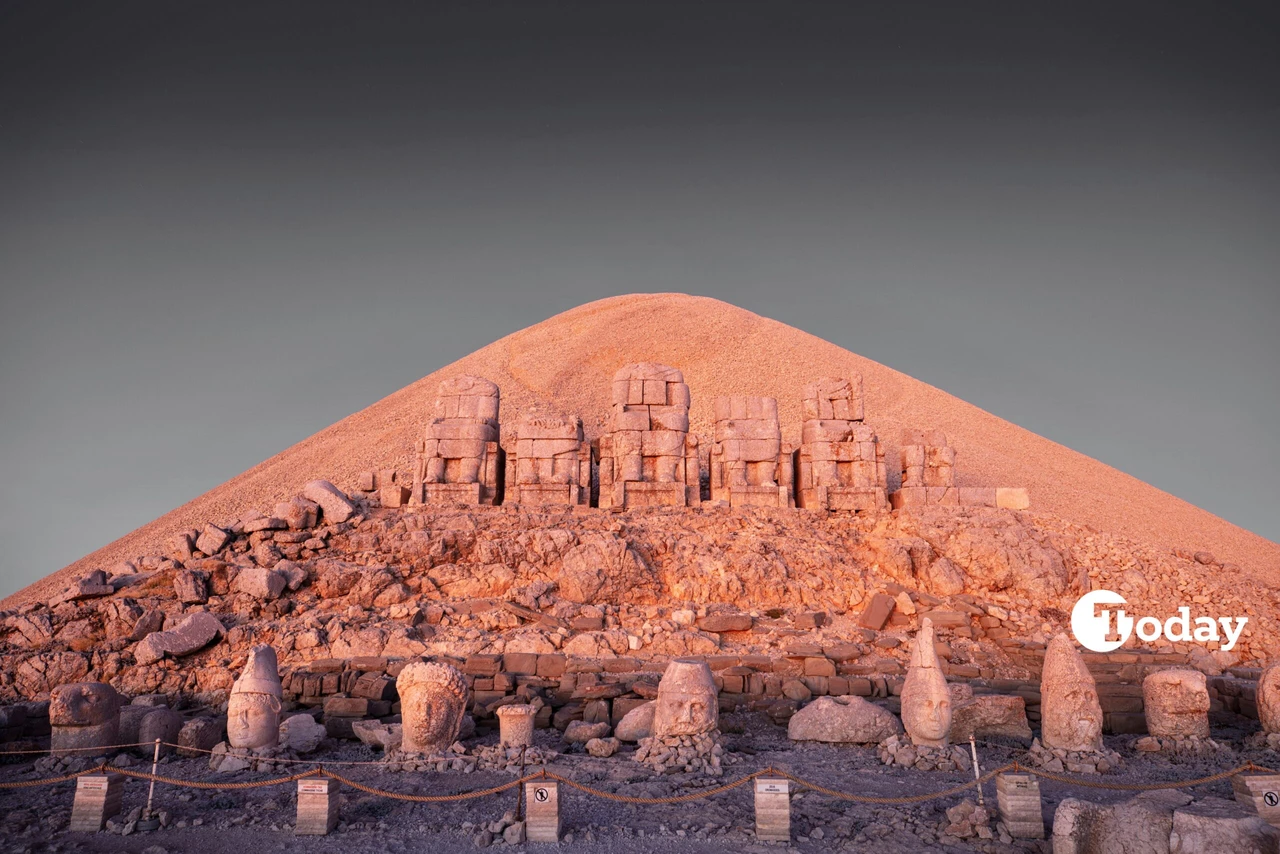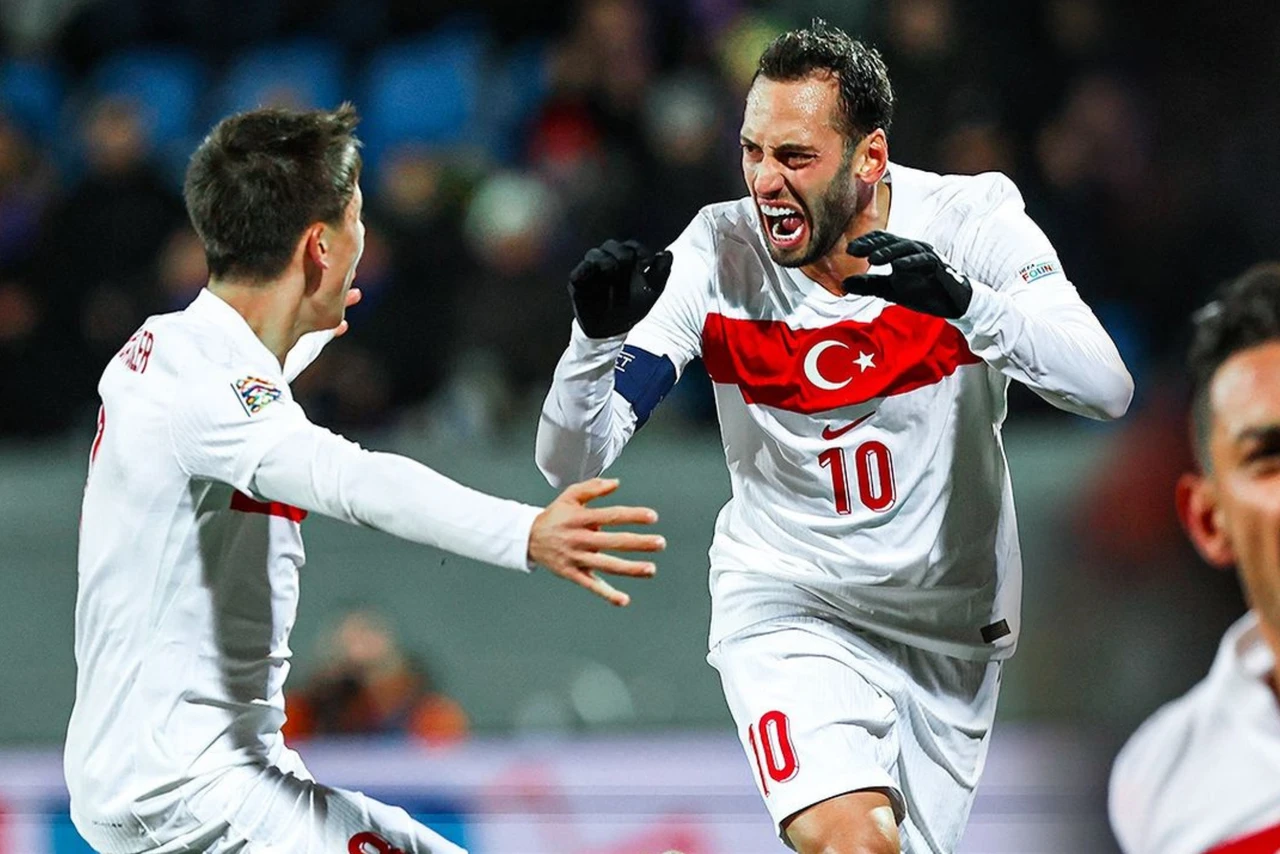Preserving heritage: Turkish mind games for future generations
 President of the All Mind and Intelligence Games Federation (TAZOF) announced that they aim to take the mind and intelligence games to an international level by hosting them in Türkiye, June 11, 2023. (AA Photo)
President of the All Mind and Intelligence Games Federation (TAZOF) announced that they aim to take the mind and intelligence games to an international level by hosting them in Türkiye, June 11, 2023. (AA Photo)
Canan Alicioglu, a representative of the Intelligence Sports and Games Confederation in Amasya and Vice President of the Mangala Federation, works tirelessly to preserve traditional Turkish mind games for future generations.
Alicioglu has taught over 500 children these games in the past three years through courses she established.
Discovery of Turkish mind games
Alicioglu discovered the traditional Turkish game Mangala in 2017 while working as a government employee in Sarikamis, Kars.
After receiving training, she became an instructor.
In 2021, she moved to Amasya and became the Mangala Federation representative for the region.
By 2022, she was appointed the federation’s vice president.
Alicioglu also leads the Intelligence Sports and Games Confederation’s Amasya branch. She founded the Association for the Promotion and Development of Intelligence Games and Drama three years ago and teaches Turkish mind games to children through it.
Her courses aim to combat technology addiction. So far, they have educated over 500 children aged 5-15, and about 150 are currently enrolled in the classes.
Türkiye in international mind game competitions
Her students have achieved notable success in international competitions. Last year, at the 1st Mangala Open World Cup in Constanta, Romania, they won second place in the Mangala category and two third places in Dokuz Kumalak and Bestemse.
Alicioglu emphasized her volunteer work to promote traditional Turkish mind games. “By teaching these games to children, we contribute to their cognitive development and prepare them to represent our city in tournaments,” she said.
She highlighted two key benefits of these games: promoting analytical thinking and reducing technology dependence.
“When a child faces a problem, they learn to observe it from different angles, make long-term decisions, and analyze the outcomes,” she explained.
“Moreover, they move away from technology addiction. The Mangala game family, part of Turkish intelligence games, has been recognized by UNESCO as an intangible cultural heritage of Türkiye, Kyrgyzstan and Kazakhstan. Therefore, it is very precious to us.”
Spreading heritage of Turkish mind games
Alicioglu noted that Mangala is among the world’s most widely played local game groups. “We teach these games to our children to popularize them. We are doing our best to spread Dokuz Kumalak, Bestemse and Turkish Mangala, games of our ancestors, grandmothers, grandfathers, and shepherds,” she said.
Fifteen-year-old Zeynep Usta has attended Mangala courses for about a year and shares her experience. “I see myself more successful in Mangala and Dokuz Kumalak and participate in tournaments in these areas,” she said.
“Mangala started as an escape from schoolwork for me, but when I learned about its history, I felt, ‘We must continue this.”



